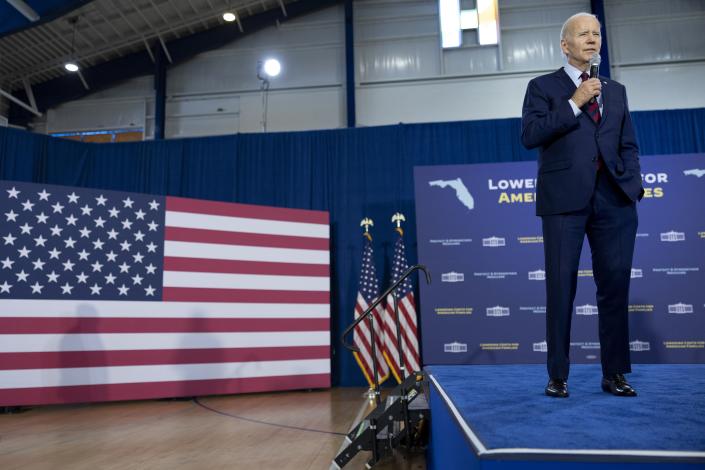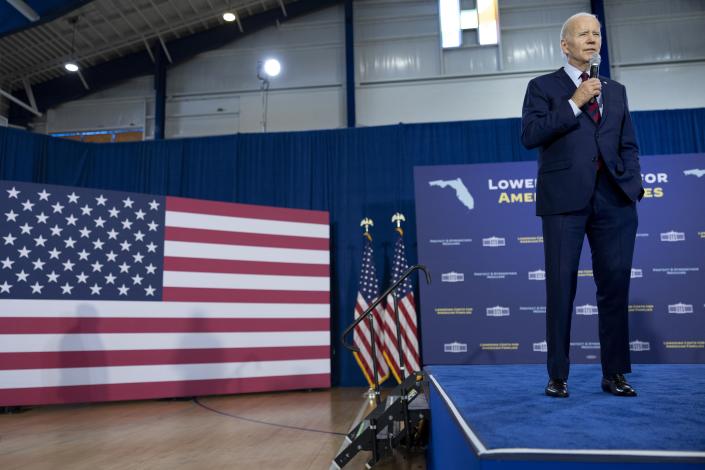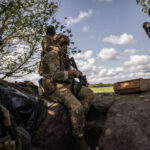
MIAMI GARDENS, Fla. — President Joe Biden verbally fumbled during a campaign swing in Florida on Tuesday, confusing the U.S. war in Iraq with the Russian war in Ukraine, and then he fumbled again while he tried to correct himself, misstating how his son Beau died in 2015.
In defending his record on inflation, Biden was trying to blame rising costs on President Vladimir Putin of Russia for his invasion of Ukraine, which has roiled international energy markets. It’s a point that he makes regularly in public speeches, but this time he mixed up his geography and history.
“Inflation is a worldwide problem right now because of a war in Iraq and the impact on oil and what Russia is doing,” Biden told a crowd during a speech at O.B. Johnson Park in Hallandale Beach, Florida, before heading to Miami Gardens for an evening campaign rally with Democratic candidates. He quickly caught his own mistake. “Excuse me,” he said, “the war in Ukraine.”
Sign up for The Morning newsletter from the New York Times
But as he tried to explain how he mixed up the two wars, he told the audience, “I think of Iraq because that’s where my son died.” In fact, Beau Biden, a military lawyer in the Delaware Army National Guard, served for a year in Iraq. He returned home in 2009 and died of brain cancer in the United States in 2015.
Biden, who has made the same mistake before, once again sought to correct himself. “Because, he died,” he said, apparently referring to his belief that Beau’s cancer could have been caused by his service in Iraq, where he may have been exposed to toxic burn pits.
Biden, who at 79 is the oldest president in U.S. history, has a long record of gaffes dating back to when he was a young man. But his misstatements have become more pronounced, and more noticed, now that he has the spotlight of the presidency constantly on him. While Biden has said he intends to run for a second term, his age ranked at the top of the list for Democratic voters who told pollsters that they want the party to find an alternative, according to a survey by New York Times and Siena College this summer.
© 2022 The New York Times Company




